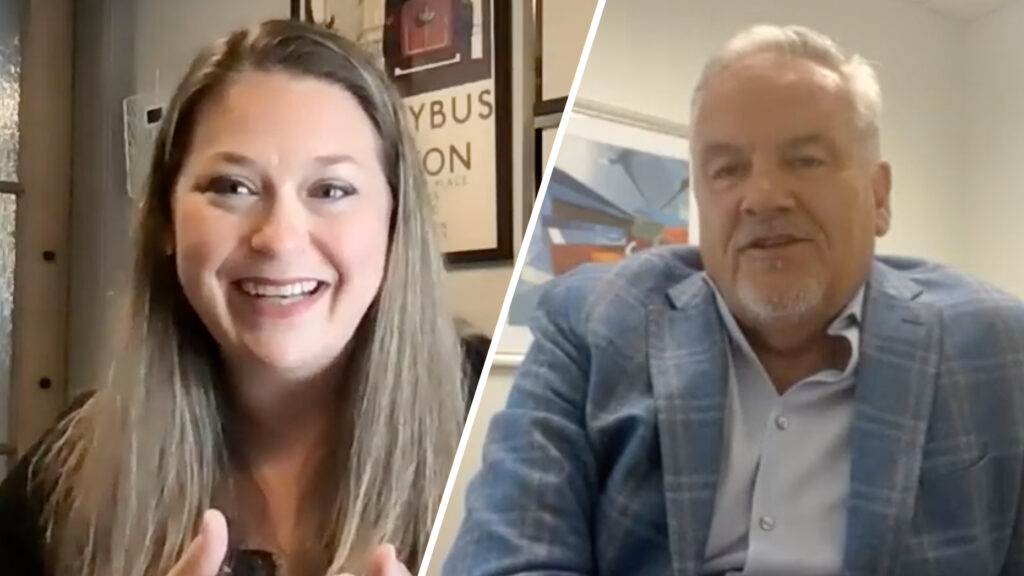Armed with knowledge of market trends, agents can earn sellers’ trust and have more leeway to set strategy, top brokers said at Inman Connect Now.
In a shifting real estate market, the guidance and expertise that Inman imparts are never more valuable. Whether at our events, or with our daily news coverage and how-to journalism, we’re here to help you build your business, adopt the right tools — and make money. Join us in person in Las Vegas at Connect, and utilize your Select subscription for all the information you need to make the right decisions. When the waters get choppy, trust Inman to help you navigate.
A real estate agent who demonstrates a strong grasp of what’s going on in the market is likelier to earn a seller’s trust and set a firm strategy for the listing, according to top brokers at Inman Connect Now.
Familiarity with the broader housing market is one of the key factors many clients need to see before they can hand over control of the listing process to an agent, Chicago brokerage co-founder Tommy Choi said on the virtual panel from Thursday’s event.
“I always say to our team that we have to be the chief economists for each one of our clients,” the co-founder of Weinberg Choi Residential at Keller Williams said.
This means not only understanding what’s happening in the market broadly, but also knowing what other homes like the one the client is trying to sell are going for.
“When you lead with those data points, and really explain it to them in layman’s terms on what that means, they’re going to look at you as that chief economist,” Choi said. “And you’re going to be set up for success to really lead strategy and not get much pushback.”
Agents can turn to their local, state and national organizations for this information, as well as their local MLS. Checking regularly with these groups and their loan officers can help agents stay on top of new data in a quickly shifting market, said broker Sabrina Brown, a broker at Brown and Brown Real Estate in California.
“Knowledge is key,” Brown said. “I think that in this market right now, the agents that know their stats, they’re going to survive. The agents that don’t, they’re not going to be here. They’re going to trickle away.”
The discussion between Brown and Choi was moderated by Amy Somerville, vice president for professional development and industry engagement at Buffini & Co.
The rapidly-changing market conditions — where higher mortgage rates have already reduced demand and begun to slow home price growth — have left many sellers wondering if they’ve missed the boat, Somerville said.
Despite the ongoing slowdown in real estate purchase activity, Brown said the current market is a far cry from what preceded the housing crash of 2007.
Back then, homeowners were refinancing primarily to gain access to home equity which some used to buy cars, boats and other pricy assets that go down in value over time, she said. Over the last two years, the reasons for refinancing mortgages have been quite different.
“In this market, people are not getting adjustable rates, they’re getting fixed rates,” Brown said. “They’re refinancing and getting the lower interest rate and keeping that money — putting that into a savings [account] or investing it in something else.”
Part of the reason buyers and sellers struggled during that period was because they didn’t get enough honest and up-front advice from their real estate agents, Choi said.
“The trouble we saw during that last recession was people being afraid to tell sellers at their dining room table that, ‘Hey, I’m sorry, but you’re underwater on your property,’” he said.
And while homeowners have far more equity today than they did during the last major slowdown, agents and their clients can benefit from having tough conversations that focus on realistic solutions in this market, Choi said.
“Right now, I’m starting to have flashbacks to those conversations — [just] not to those extremes,” he said.
Email Daniel Houston



 Are You Interested in West Eleventh Residences Miami?
Are You Interested in West Eleventh Residences Miami? Are You Interested in ONE Park Tower by Turnberry?
Are You Interested in ONE Park Tower by Turnberry? Are You Interested in Diesel Wynwood Condominium?
Are You Interested in Diesel Wynwood Condominium? Are You Interested in Five Park Miami Beach?
Are You Interested in Five Park Miami Beach? Are You Interested in Cipriani Residences Miami?
Are You Interested in Cipriani Residences Miami? Are You Interested in Bentley Residences Miami?
Are You Interested in Bentley Residences Miami? Are You Interested in Baccarat Residences Brickell?
Are You Interested in Baccarat Residences Brickell? Are You Interested in Aria Reserve Miami?
Are You Interested in Aria Reserve Miami? Are You Interested in 888 Brickell Dolce & Gabbana | Miami?
Are You Interested in 888 Brickell Dolce & Gabbana | Miami? Are You Interested in 600 Miami WorldCenter?
Are You Interested in 600 Miami WorldCenter? Are You Interested in HUB MIAMI RESIDENCES?
Are You Interested in HUB MIAMI RESIDENCES? Are You Interested in WALDORF ASTORIA RESIDENCES?
Are You Interested in WALDORF ASTORIA RESIDENCES?